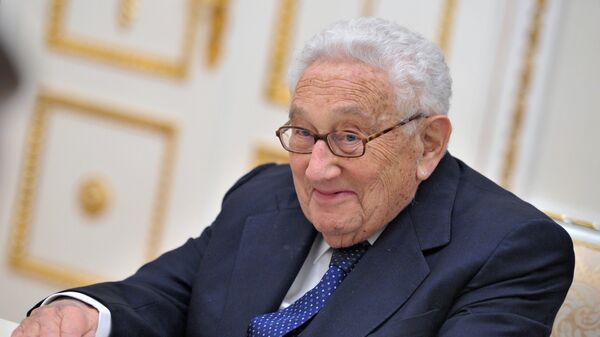Henry Kissinger is arguably one of the most renowned former US Secretaries of State. In 1973 he received the 1973 Nobel Peace Prize. However, the decision was controversial, and even resulted in two committee members resigning in protest.
In any case, even after retiring as a Secretary of State, Kissinger remained popular as an advisor to not only US presidents, but other world leaders as well, despite retaining status as a controversial political figure. His early life, however, was less than glamorous.
He was born on May 27, 1923, in Fürth, Germany, in an Orthodox Jewish household. When he was fifteen, his family finally fled Germany, escaping Nazi persecution. Initially they moved to London, before finally settling in New York. Despite living through the rise of the German Nazism, Kissinger once told in a 1971 interview:
My life in Fürth seems to have passed without leaving any lasting impressions. That part of my childhood is not a key to anything. I was not consciously unhappy. I was not acutely aware of what was going on. For children, these things are not that serious.
Much later, in a 2013 video produced by The International Rescue Committee, Kissinger admitted:
…when you see the mass exodus of people in war situations, or in genocidal situations, that magnifies my personal experience. But I think my personal experience creates an understanding and, I like to think, a sense of obligation to being sympathetic and supportive.
So for all of these reasons I think helping refugees is something this country must do.
As a Secretary of State, Kissinger was in office from 1969 to 1975. During this period he received the Nobel Peace prize for orchestrating peace in Vietnam and end of the Vietnam War. However, Le Duc Tho, Vietnamese diplomat who was also awarded the Peace Prize for his work on the Paris Peace Accords, refused to accept it, as the war was not effectively over at the time.
Kissinger’s other achievements, regardless of their controversial nature, include pioneering the policy of détente with the Soviet Union and opening relations with the People's Republic of China. At the same time, he was responsible for such controversial political decisions as CIA involvement in Chile and US support for Pakistan in the 1970s.
What Kissinger admitted publicly on his early years in Nazi Germany and its effect on him, was regarded as a defense mechanism by some. Fritz Kraemer, German military educator who fled to the United States ultimately discovered Kissinger, setting him on his career path. Kraemer later said this about Kissinger:
For the formative years of his youth, he faced the horror of his world coming apart, of the father he loved being turned into a helpless mouse… It made him seek order and it made him hunger for acceptance, even if it meant trying to please those he considered his intellectual inferiors.
Perhaps it was this experience, which he does not like to share publicly, that shaped one of the most renowned and controversial figures of international politics of the 20th century.

